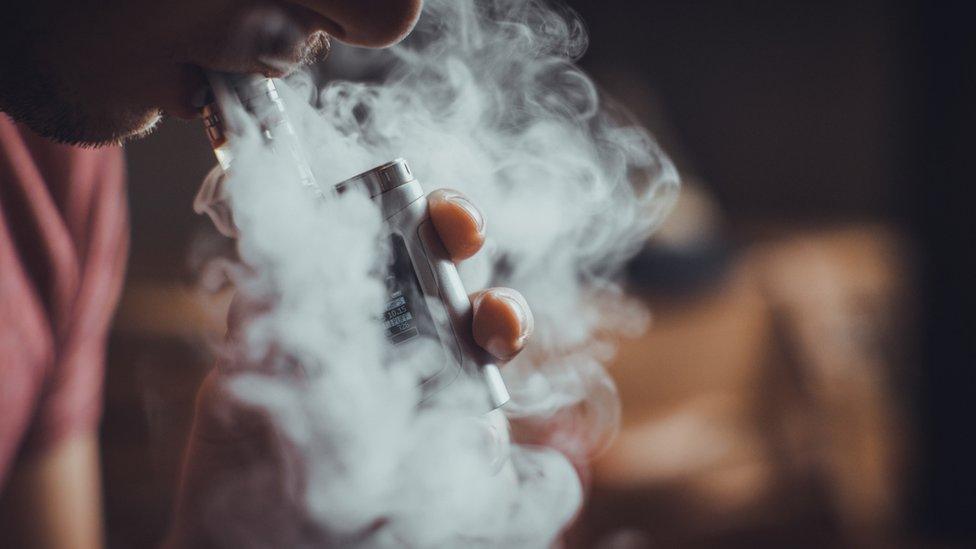Sensors reduce student vaping, Kidderminster school says
- Published
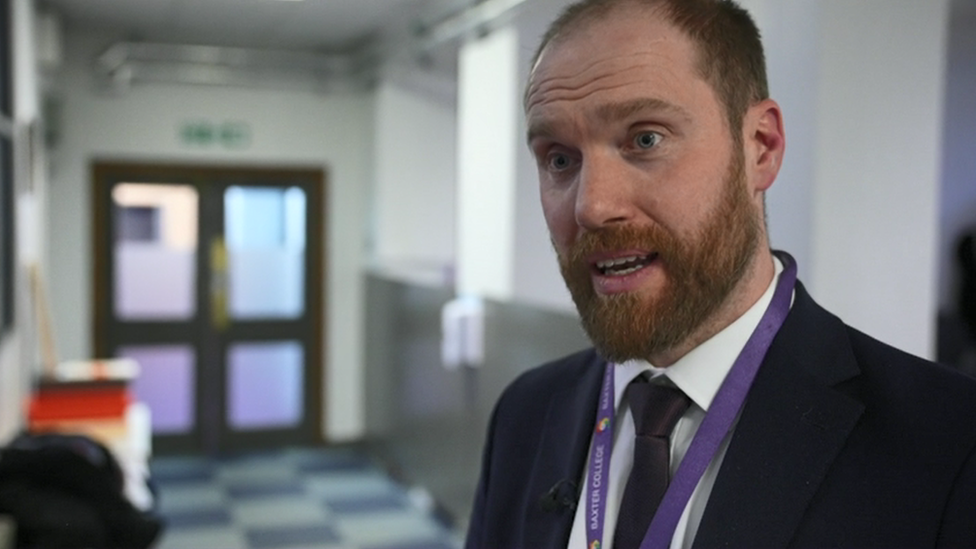
Matthew Carpenter, headteacher, said the detectors had reduced the number of students vaping
A headteacher says sensors have reduced the number of students vaping.
Matthew Carpenter, from Baxter College, Kidderminster, had the sensors and also CCTV installed to tackle the use of e-cigarettes.
It comes as a group of students there admitted addiction to vaping.
The tech, Mr Carpenter said, had been used to "pinpoint" when and where the activity was happening to help lessen impacts on both students and the school environment.
The school had spent £4,000 installing CCTV outside plus sensors in toilet blocks, having seen an increase, it said, in the number of students asking to go to the toilet during lessons.
"We've got a CCTV camera outside so we can just use the timestamps to work out when it was happening," Mr Carpenter explained.
"What the sensors allow us to do is really accurately pinpoint when students have been vaping."
E-cigarettes have helped many thousands of people stop smoking by removing the dangerous and toxic tobacco smoke from their habit, giving a huge health boost.
But the e-cigarette vapour which is inhaled can still contain small amounts of chemicals, including nicotine.
Mr Carpenter said students who had not smoked previously had taken up vaping as a "lifestyle choice" and he was concerned it would lead them to smoke traditional cigarettes and a nicotine addiction.
Trading Standards says one in three vaping products may fall short of regulations monitoring nicotine limits.
It is illegal to sell e-cigarettes and liquid to under-18s.
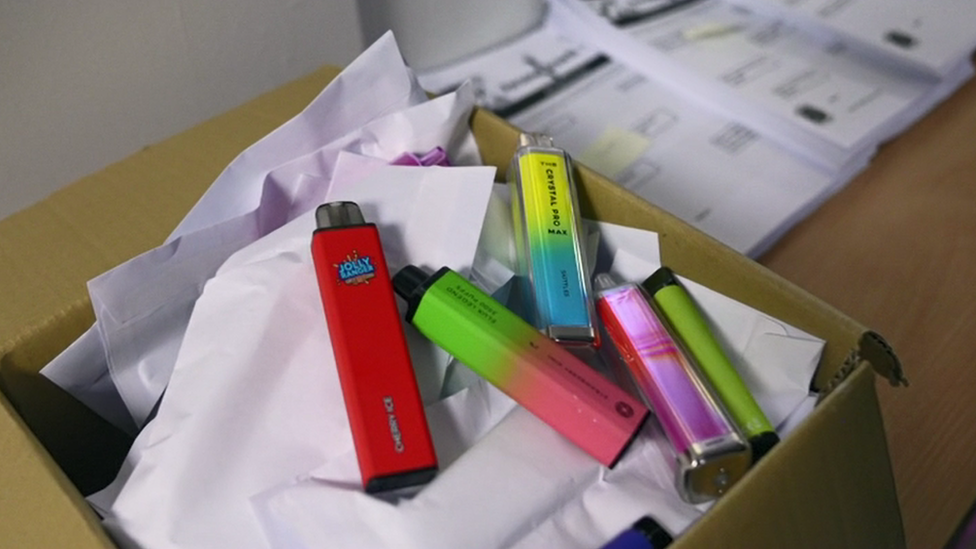
A number of vapes had already been confiscated at the school
Mr Carpenter said the sensors had already enabled him to confiscate numerous vapes amid concerns they had been sold illegally.
"We've noticed a real reduction, 16 cases or alerts on the first day, down to one or two a week," he said.
One student who had given up vaping said that he had supported the school's crackdown and added he "felt better" for stopping.
Another student who had started vaping at the age of 12 admitted he was addicted and could not "really stop" after he first tried it with a friend.
"At first it's like a social thing, like you do it with your friends and stuff but then after that you just start getting addicted to it and you want to do it yourself," he explained.
"You do it on your own, you do it around anyone, you just can't really stop."
Another student added cravings controlled "the whole way that you think".

Follow BBC West Midlands on Facebook, external, Twitter, external and Instagram, external. Send your story ideas to: newsonline.westmidlands@bbc.co.uk, external
Related topics
- Published18 January 2023
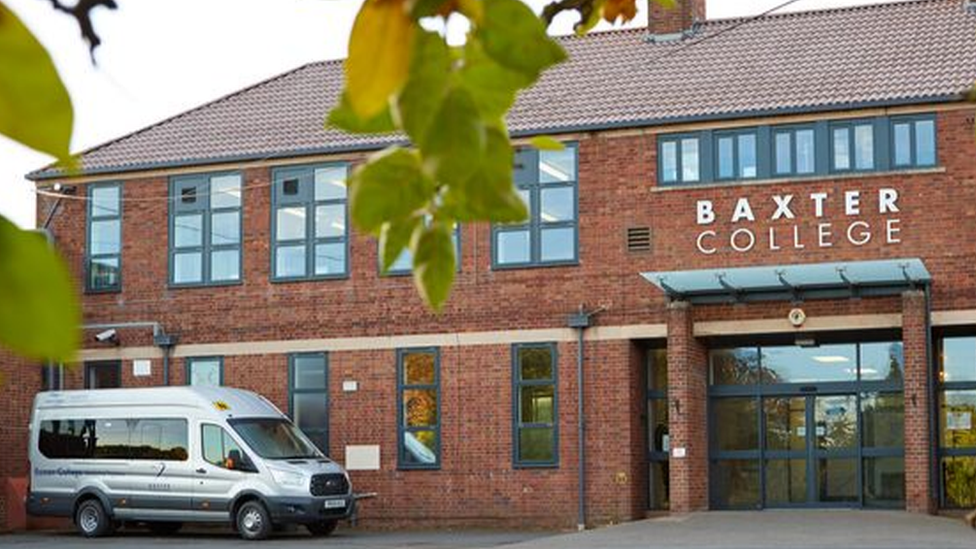
- Published11 February 2023
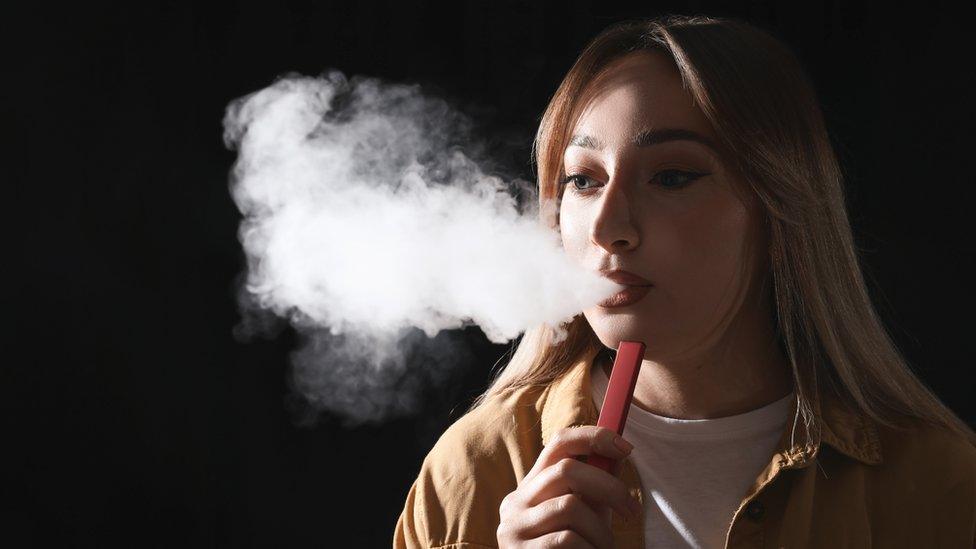
- Published30 January 2023
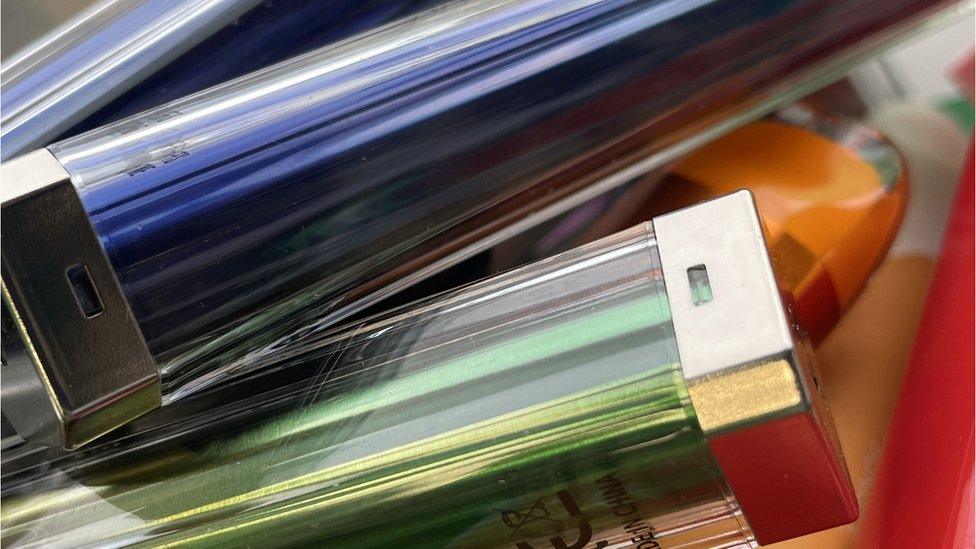
- Published24 June 2022
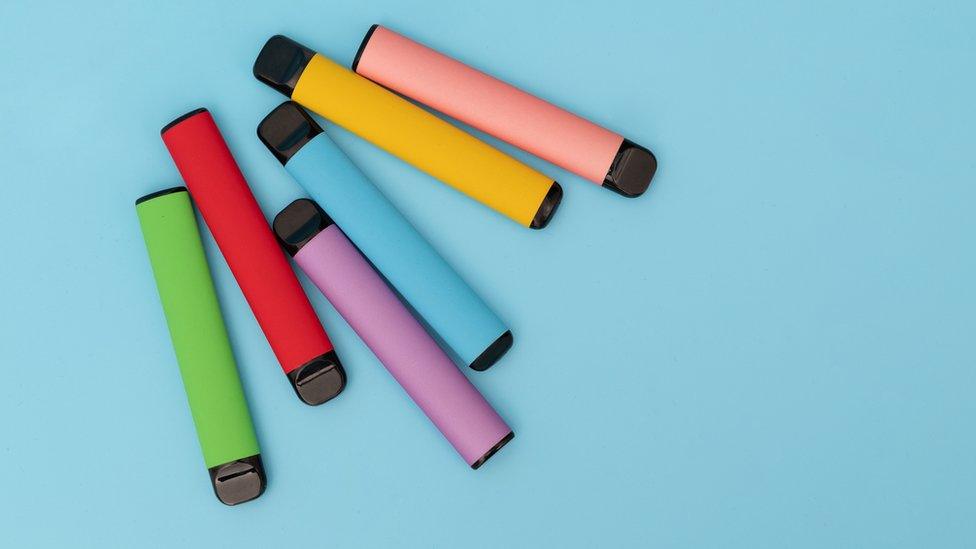
- Published14 February 2022
